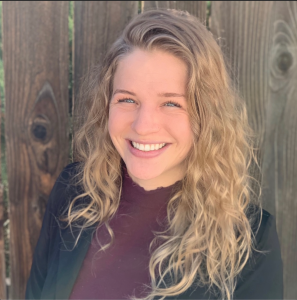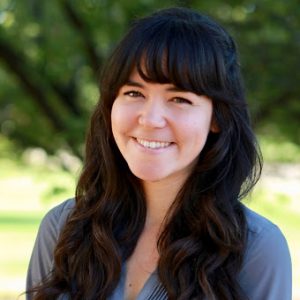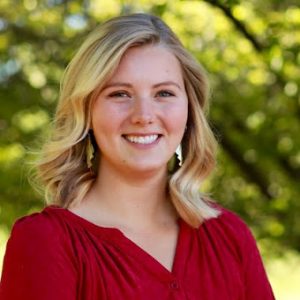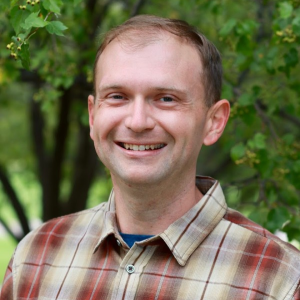This is the third blog post in a series on diversity, equity and inclusion in Colorado agricultural water planning. Read the first post and second post.
Design and implementation for a working meeting with urban agriculture stakeholders in Colorado
Among the three underrepresented communities in water planning identified in our previous post, urban agriculture presents unique opportunities for water planning in Colorado, including fostering resilience in the food system and innovation in land-use planning. In an effort to begin the process of elevating voices of underrepresented communities, we hosted a virtual working meeting for water planning professionals and urban agriculture (UA) stakeholders. The event, hosted in October 2020 by the University of Colorado Boulder and the Colorado Water Conservation Board (CWCB), was meant to serve as a platform for stakeholder and administrator collaboration, with the goal of creating a more equitable and inclusive Colorado Water Plan (CWP) update.
Discussed below are outreach methods, discussion framing, follow-up, and preliminary recommendations for how to include UA in Colorado water planning. This information may serve as a model for future working meetings within Colorado water planning that better meet the needs of historically underrepresented communities. We believe that carefully and consistently implementing these practices during the Water Plan update process will help create a more just and resilient future.
For more context, feel free to read the previous posts in this series: Diversity, Equity, and Inclusion in the Colorado Water Plan Update, and Underrecognized and Underserved Communities in Colorado Water Planning.
Methods
Rather than follow a more traditional listening-session format of presentations by experts and a brief question-and-answer session, we structured our event as a working meeting meant to foster dialogue. Participants — UA producers, water managers, and stakeholders — were given basic question prompts and encouraged to interact with each other and facilitators to elicit a broad variety of feedback. To help design the layout of the meeting, we collected thoughts and opinions from a variety of stakeholders through individual conversations and data collection.
The COVID-19 pandemic necessitated the use of a virtual platform for the meeting. Rather than hamper interaction, however, this precaution allowed for widespread attendance for participants in various areas of the state. These types of virtual convenings may continue to prove useful even after social distancing provisions are lifted. When in-person meetings are permissible, CWCB could facilitate virtual convenings to increase participation from more geographically distant stakeholders. Such “hybrid” meetings, however, will only be successful if virtual attendees are intentionally included in small and large group discussion and report-outs.
Pre-meeting engagement
As a first step, we conducted background research to gain a basic understanding of UA and the status of UA in Colorado. This was done through traditional research and outreach to some prominent stakeholders including Fatuma Emmad, founder of Frontline Farming and Erin Foster West, Western Campaigns Director for the National Young Farmers Coalition. Starting with individual conversations was crucial not only to gain on-the-ground, current knowledge of UA, but also to point us to more folks working in the UA space in Colorado. Working with organizations that are already active in Colorado communities doing this work helped to foster trust and broaden our outreach capacity.
Through these conversations, we generated a list of relevant stakeholders to invite to the working session. This included urban producers, water experts, academics and others, with many folks contacted through organizations with which they were already involved. We sent invitations directly from our representative organizations and through producer associations such as the Mile High Farmers Union. The invitation was accompanied by a short survey with some basic questions regarding views on UA and water management. Select results of the survey are shown in Figures 1-3.

Figure 1: Level of respondents’ agreement with the stated definition of UA

Figure 2: Percentage of survey respondents who agreed that certain operations should fall under the definition of UA

Figure 3: The largest words in this image represent the words most frequently used by survey respondents when asked: The CWCB is interested in hearing about unique water resource challenges affecting urban agriculture. What comes to mind when you think about water and urban agriculture in Colorado?
Meeting structure
Facilitators:
- Alex Funk: Colorado Water Conservation Board Agricultural Water Resources Specialist
- Fatuma Emmad: Co-founder and Executive Director of Frontline Farming, President of Mile High Farmers Union, and mayor-appointed Member of the Sustainable Food Council for City of Denver
- Jennifer Riley-Chetwynd: Director of Marketing & Social Responsibility for Denver Botanic Gardens and Co-Director of the One World One Water Center at the Metropolitan State University of Denver
- Nicole Civita: Specialization lead for Sustainable Food Systems at University of Colorado Boulder Masters of the Environment Program and Professor of Urban Agriculture Law & Policy at the University of Arkansas
Event Proceedings
- Welcome and an Indigenous land acknowledgment: We first want to recognize many of us are attending this meeting from CU Boulder, which sits upon land within the unceded territories of the Ute, Cheyenne, and Arapaho peoples. Further, we acknowledge that 48 contemporary tribal nations are historically tied to the lands that make up the state of Colorado.
- Brief presentation on the background of urban agriculture and the Colorado Water Plan (see Figures 1-3 above).
- The four facilitators were introduced and each gave a brief overview on the challenges and opportunities they see regarding urban agriculture and water in Colorado.
- The attendees then discussed four questions regarding urban agriculture and water in Colorado:
- What is urban agriculture in Colorado?
- How do urban farmers in Colorado access water? What challenges and opportunities exist?
- Where do we see urban agriculture in Colorado evolving in the next ~30 years?
- What resources could help urban farmers learn more about water? What types of assistance are needed to help urban farmers equitably access water?
Themes and Recommendations for Engaging Urban Agriculture in the Colorado Water Planning
A number of themes emerged during the working session that could serve as preliminary recommendations for including urban agriculture in the Colorado Water Plan update. The following is a list of some of these themes and recommendations:
- Continue exploration and work sessions of urban agricultural water needs. This working session was effective in fostering conversation and gathering input on the urban agriculture community’s water priorities but was meant to lay a foundation for further exploration. Future sessions and engagement are necessary to create a more complete and comprehensive picture of the UA sector’s needs.
- Incentivize urban agriculture production in urban and suburban development. The pattern of urban and suburban development in Colorado is a major influence on current and future urban agricultural production. Participants highlighted both challenges and opportunities posed by Colorado’s rapid pace of development: Extensive amounts of agricultural land could be closed off to food production, but developers could also be incentivized to include space for urban agriculture in development plans. Precedents for this exist in open space and green belt planning, and a more proactive approach could incorporate similar spaces for agricultural production in and near cities.
- Identify and quantify the benefits of urban agriculture. The benefits of growing food in and near cities are well documented, but little formal research has quantified those benefits in the state of Colorado, particularly regarding water use. Dedicating resources to identifying and quantifying the benefits of urban agricultural production would be an important impetus for more serious consideration in current and future water and land-use planning efforts. These benefits could exist in many forms, including:
- Water savings achieved via UA vs. lawns
- Community cohesion
- Urban biodiversity enhancement
- Local food security
- Fund education initiatives to highlight benefits of urban agriculture and water stewardship. A central theme in the session was the perceived barriers of understanding between urban agricultural producers, water managers, and the general public. Because urban producers generally rely on municipal water sources, they are often not as directly affected by regional water shortages as traditional rural producers, perpetuating the idea that “water comes from the tap.” As many urban farming organizations also feature educational components on growing food in urban and suburban environments, they are uniquely positioned to educate the general public about water stewardship as well. Funding a program that would educate urban farmers on water planning and sustainable water management and could then be propagated to the general public could increase an ethos of water stewardship and address the education and public outreach goals of the CWP.
Our next post, the final in this series, will summarize our recommendations for improving diversity, equity, and inclusion in the Colorado Water Plan update process.
 Willow Cozzens currently serves as the Water and Equity Project Coordinator for the National Young Farmers Coalition and Frontline Farming and as the Equity and Food Policy Analyst for Jefferson County Department of Public Health. She holds a Master’s degree in Sustainable Food Systems from the University of Colorado – Boulder, where her coursework and practical application projects were focused in environmental policy, food and agriculture law, natural resources science, and responsive activism. Willow is particularly passionate about the cultural and economic impacts of natural resources management and food justice.
Willow Cozzens currently serves as the Water and Equity Project Coordinator for the National Young Farmers Coalition and Frontline Farming and as the Equity and Food Policy Analyst for Jefferson County Department of Public Health. She holds a Master’s degree in Sustainable Food Systems from the University of Colorado – Boulder, where her coursework and practical application projects were focused in environmental policy, food and agriculture law, natural resources science, and responsive activism. Willow is particularly passionate about the cultural and economic impacts of natural resources management and food justice.
 Samantha Grant just achieved her Master’s degree in Sustainability Planning and Management from the University of Colorado – Boulder. Her graduate work primarily focused on environmental policy, water resource management, and climate justice. Her career interests are largely centered around community-based climate action planning as a means to create inclusive and impactful change for all.
Samantha Grant just achieved her Master’s degree in Sustainability Planning and Management from the University of Colorado – Boulder. Her graduate work primarily focused on environmental policy, water resource management, and climate justice. Her career interests are largely centered around community-based climate action planning as a means to create inclusive and impactful change for all.
 Amelia Nill is originally from Kansas City, Missouri and is a recent graduate of the Master’s of the Environment program at the University of Colorado – Boulder. There, she specialized in Sustainability Planning and Management as well as Water Engineering and Management. She is currently volunteering for the American Water Works Association on their Sustainability Committee. She is interested in pursuing a career in natural resource (specifically water) planning, sustainability and environmental justice.
Amelia Nill is originally from Kansas City, Missouri and is a recent graduate of the Master’s of the Environment program at the University of Colorado – Boulder. There, she specialized in Sustainability Planning and Management as well as Water Engineering and Management. She is currently volunteering for the American Water Works Association on their Sustainability Committee. She is interested in pursuing a career in natural resource (specifically water) planning, sustainability and environmental justice.
 Andrew Primo recently graduated from the University of Colorado – Boulder with his Master’s in Environmental and Natural Resource Policy. His graduate work focused on Western water planning and policy, public lands decision-making, and science-policy communication. His career interests are focused on environmental and science education and outreach, bridging the science-policy gap, and environmental storytelling.
Andrew Primo recently graduated from the University of Colorado – Boulder with his Master’s in Environmental and Natural Resource Policy. His graduate work focused on Western water planning and policy, public lands decision-making, and science-policy communication. His career interests are focused on environmental and science education and outreach, bridging the science-policy gap, and environmental storytelling.


 Print
Print